Trump wall: New proposal ties Dreamer plan to border clampdown
- Published
Daca recipients: 'Life in the US is like a rollercoaster'
The White House has tied any new deal on young undocumented immigrants to a clampdown on illegal immigration, including a border wall with Mexico.
US President Donald Trump is asking for funding for the wall, speedier deportations and the hiring of thousands of new immigration officials.
Last month he ended the Obama-era "Dreamer" programme which had protected some 690,000 immigrants.
Leading Democrats in Congress have rejected the latest proposals.
They accused Mr Trump of backtracking on a commitment not to include the border wall in negotiations over the status of young immigrants, who are mostly from Mexico and other Latin American countries.
The Deferred Action for Childhood Arrivals (Daca) programme, set up in 2012 under President Barack Obama, is due to expire in March, casting doubt on the future of those protected.
What are Trump's demands?
The list of "principles" delivered by the White House to Congress on Sunday includes:
Constructing the border wall with Mexico
Employing 10,000 additional Immigration and Customs Enforcement officers and 1,000 lawyers for the agency
Hiring an extra 370 immigration judges and 300 federal prosecutors
Banning immigrants from bringing their extended family members to the US
Penalising "sanctuary cities" that have resisted the Trump administration's efforts to crack down on illegal immigrants
Having companies use an E-Verify programme to keep illegal immigrants from getting jobs
"These findings outline reforms that must be included as part of any legislation addressing the status of Deferred Action for Childhood Arrivals recipients," Mr Trump wrote in a letter to Congress accompanying the list.
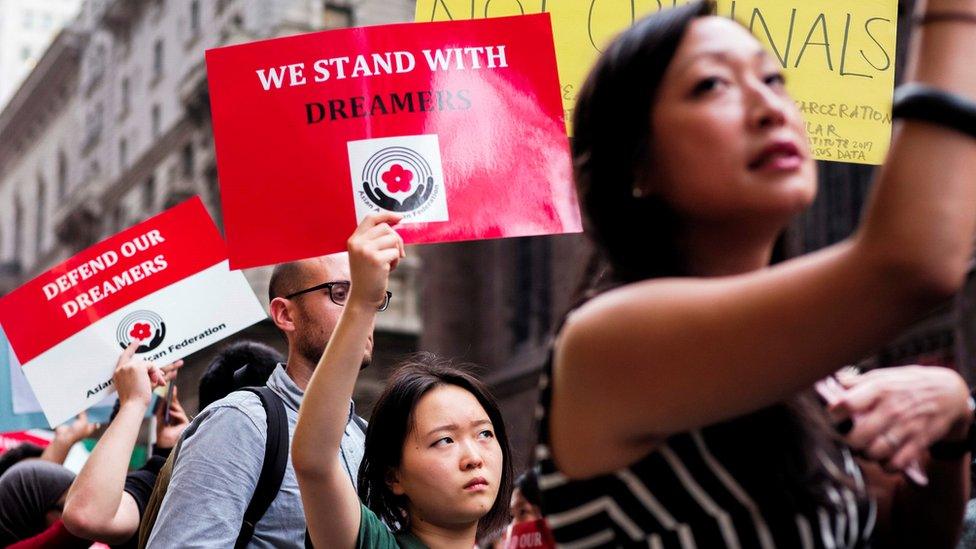
Dreamer supporters rallied outside Trump Tower in New York last week
His legislative affairs director, Marc Short, said the priorities were "essential to mitigate the legal and economic consequences of any grant of status to Daca recipients".
Last month, Mr Trump told Congress, which is dominated by his Republican party, it had six months to agree new legislation to help the Dreamers.
Who are the Dreamers?
They are young people who were brought to or entered the US illegally as children and as such faced deportation.
Under Mr Obama's policy, they were able to apply for work and study permits but critics said the scheme amounted to an amnesty for illegal immigrants.
Since the scheme was introduced, about 100,000 recipients have seen their status lapse or change, leaving about 690,000 recipients today.
Where do America's undocumented immigrants live?
In order to qualify for Daca, applicants under the age of 30 submitted personal information to the Department of Homeland Security.
They had to go through an FBI background check and have a clean criminal background, and either be in education, have recently graduated or have been honourably discharged from the military.
In exchange, the US government agreed to "defer" any action on their immigration status for a period of two years.
What do the Democrats say?
"The administration can't be serious about compromise or helping the Dreamers if they begin with a list that is anathema to the Dreamers, to the immigrant community and to the vast majority of Americans," House of Representatives Democratic leader Nancy Pelosi and Senate Democratic leader Chuck Schumer said in a joint statement.
"The list includes the wall, which was explicitly ruled out of the negotiations. If the president was serious about protecting the Dreamers, his staff has not made a good faith effort to do so."
Mr Schumer and Ms Pelosi said in a statement, external after a meeting with Mr Trump last month that he had told them funding for the wall would not be part of a Daca deal.
However, the next day White House press secretary Sarah Huckabee Sanders tweeted that "excluding the wall was certainly not agreed to".
Allow X content?
This article contains content provided by X. We ask for your permission before anything is loaded, as they may be using cookies and other technologies. You may want to read X’s cookie policy, external and privacy policy, external before accepting. To view this content choose ‘accept and continue’.
Will the wall actually be built?
More than 200 companies are believed to have submitted designs for the proposed border wall.
It was one of Mr Trump's most controversial election pledges but debate has raged over how it will be funded.
The US leader insisted Mexico itself should pay but the authorities there have rejected the idea.
Meanwhile, a prototype was erected near San Diego, California, last week.
- Published12 November 2019
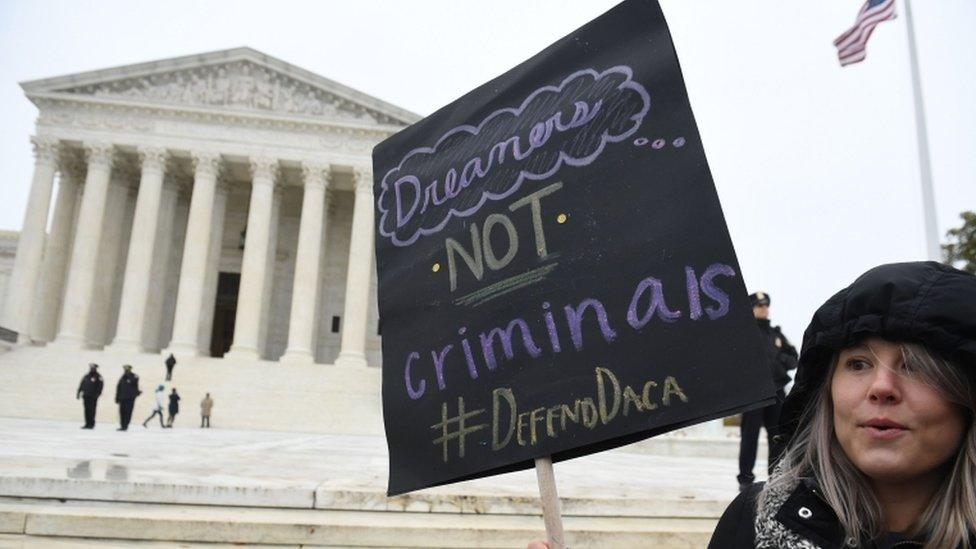
- Published5 September 2017
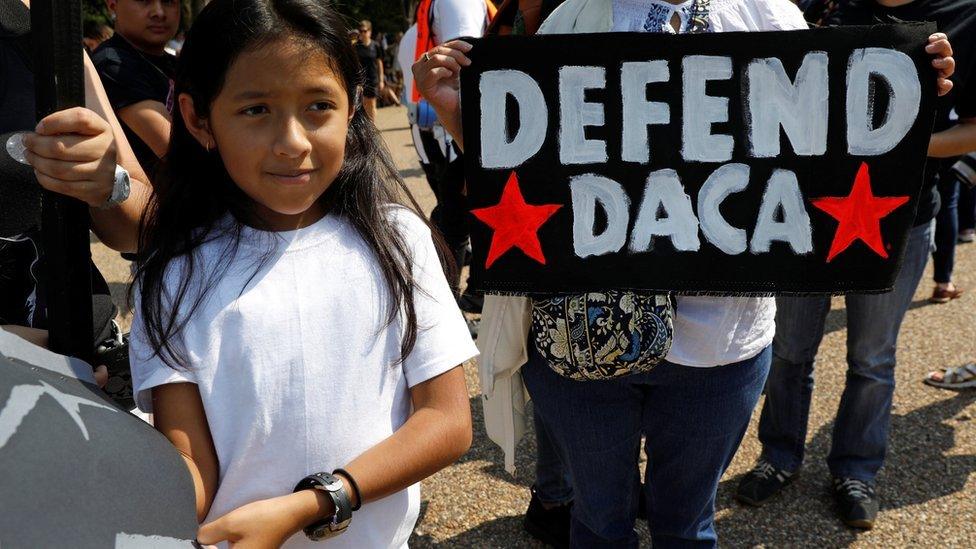
- Published1 September 2017
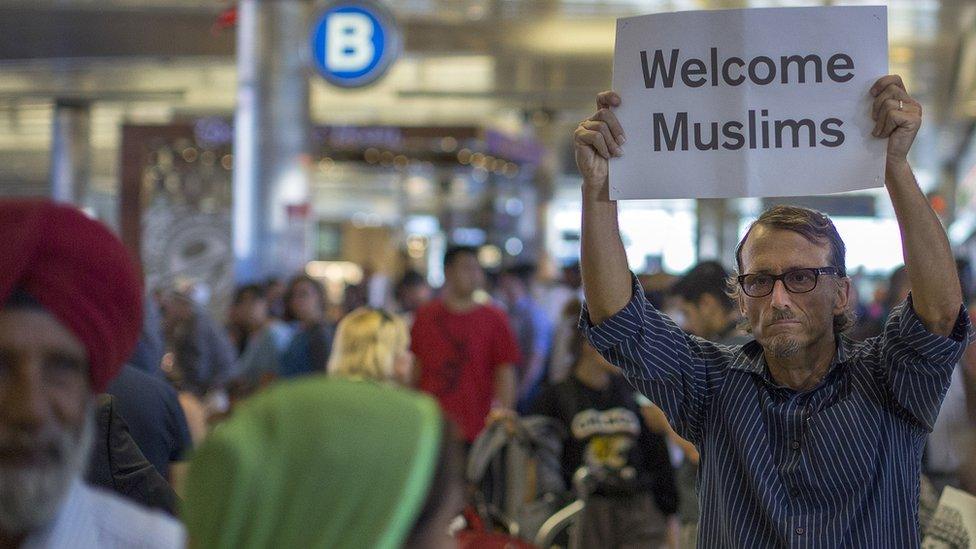
- Published25 January 2017
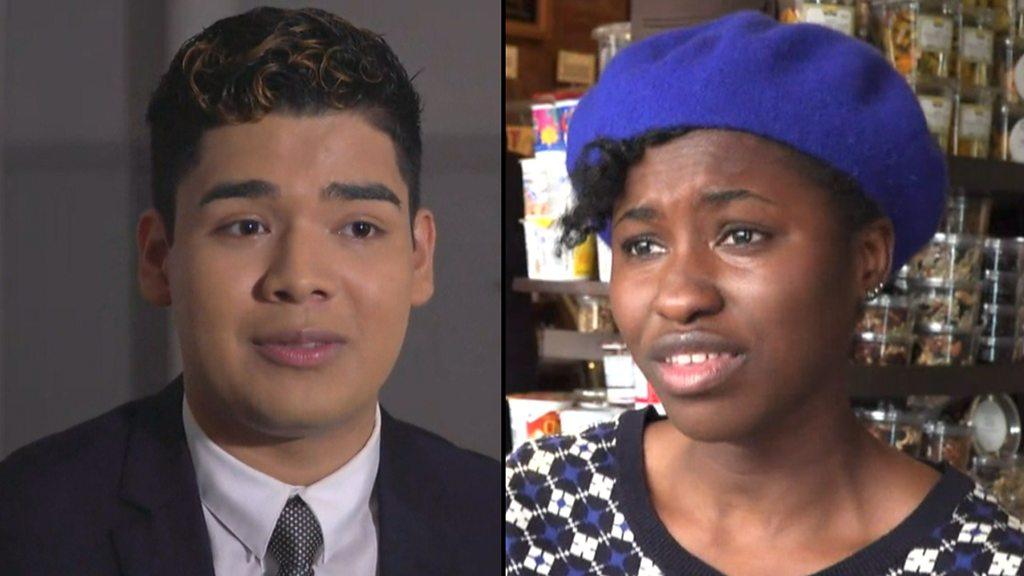
- Published25 January 2017